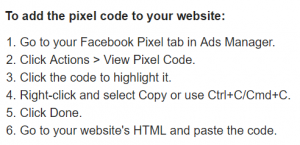
Selling your business is as much a part of its normal lifespan as any other aspect of its creation, growth, and development. As a business owner, you may have a uniquely personal attachment to your company, but the fact is deciding to sell a business can be just as fulfilling and exciting as starting or running it in the first place.
But to make a success of the sale, it’s important to prepare effectively ahead of time. Otherwise, listing your business for sale can become a very stressful experience and impact its level of profitability in the outcome. Preparation doesn’t have to be difficult, though, and it can easily fall in line with normal business activities that you’re likely already doing.
10 vital steps to effectively prepare your business for a profitable sale:
- Determine your sell-by date – With plenty of time to spare, decide when would be the best time for you personally and professionally to sell the business. Whether it be oncoming retirement, or the desire to pursue another business opportunity, you’ll want to have a target date in mind that’s near enough to effectively plan for, but far enough away to give you plenty of time to prepare.
- Develop a strategic timeline – Based on your determined sell-by date, understand that the average business sale takes 12-18 months. Giving yourself a minimum of 24 months to fully prepare will give you the best chance of a stress-free, profitable sale. Follow the remainder of this list with that timeline in mind.
- Maintain clear, accurate records – You’re probably already maintaining financial, legal, and other business records to the extent that’s necessary to run your business. But, in preparation for a sale, you’ll need to ensure that all of your records are clear, accurate, and accessible to individuals who have never reviewed them before. In some cases, they may even be reviewed by individuals with no prior industry knowledge. Since they form the foundation of a buyer’s purchase decisions, it’s vital that they tell a clear and accurate positive story about your business.
- Maintain clean, safe premises – Any physical location that represents your company should look and feel professional and inviting. If these locations are customer-facing (like a storefront or restaurant) you’re probably already doing this effectively. For private offices, warehouses, or other locations that the customer doesn’t routinely see, however, you may need to make a concerted effort to clean up and repair them in preparation for a prospective buyer’s walk through.
- Maintain a positive online reputation – With buying decisions increasingly starting online, you can safely assume any prospective buyer for your company will do their due diligence online to find out about you and your business. While you can’t completely eliminate negative reviews, you can control how you respond to them. You can also actively encourage satisfied customers to leave positive reviews on your behalf, which can effectively counteract the impact of a small number of negative reviews.
- Plan to remove yourself – One of the key factors that determines if a buyer is going to go forward with purchasing a business is whether or not they can realistically see themselves succeeding in the role of owner. If your company is structured and run in such a way that your physical presence (or continual input) is vital to its success, no buyer will be able to see themselves in that role. It’s your responsibility to set up systems, processes, and the necessary staff, to reduce your own importance to the company’s survival.
- List and market the business effectively – When your timeline hits the 12-18 month point prior to your sell-by date, you’ll need to effectively list your business for sale and market it in such a way that the kinds of buyers you need become aware of the fact that the company is for sale. There are numerous traditional and innovative ways to accomplish this, and the services of an experienced business broker may be your best bet in determining which ones appropriately balance widespread broadcasting and focused targeting so you can find the right buyer quickly.
- Keep working hard to the end – While it’s human nature to slow down and relax as the end of a project comes into sight, it’s vital NOT to do so as the sale date approaches on your business. Even if you already have a buyer lined up, it’s possible for the agreement to fall apart if the buyer senses the business is coasting or slowing down from a growth or performance perspective. Maintain your drive to make the business all it can be right up until the day of the sale.
- Offer to stay on as an advisor – Depending on the personality and disposition of the new owner, it may be extremely valuable to them to have you stay on for a limited time in an advisory role, helping them transition into ownership without having to resort to trial and error. And, this offers some psychological benefits to you as well, since you won’t need to run full-steam-ahead as a business owner right up until the last day, then stop dead.
- Have a plan in place for after – Eventually, of course, you will need to completely remove yourself from the business. It’s important to have something else you can be equally passionate about available to take its place in your life. It may be a new business opportunity, plans to spend more time with a spouse or family, or hobbies to pursue. Without something filling that void, you’re unlikely to carry out the first 9 steps in this list as wholeheartedly and purposefully as you should, and you won’t look forward to successfully completing the sale.
By following these ten steps strategically, and with the same ongoing effort and determination you put into running the business, you’ll be able to count on a relatively quick, effortless, and profitable business sale that can be a stepping stone to bigger and better things down the road.
Business & Finance Articles on Business 2 Community(41)
Report Post







